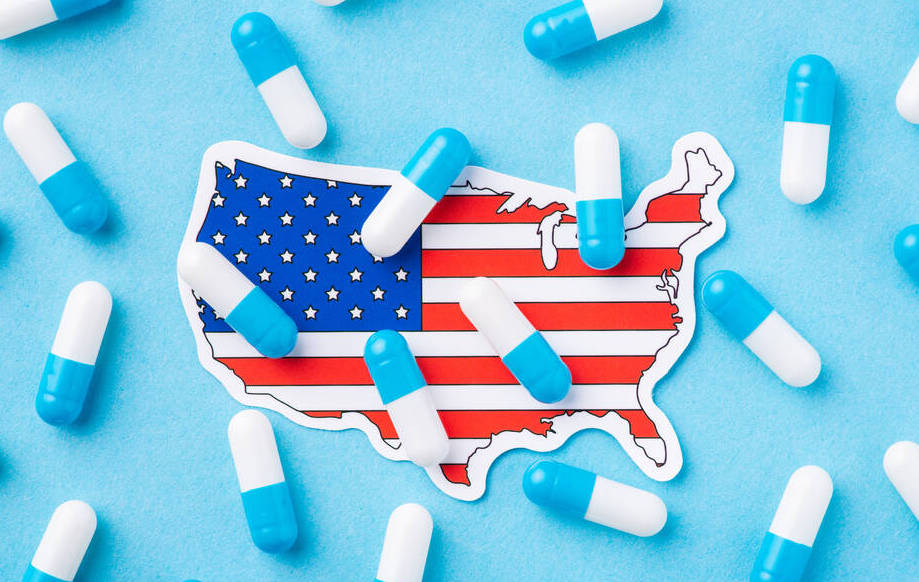Last Updated on 12/09/2025 by James Anderson
Modafinil Medical Uses in the US
Modafinil, a wakefulness promoting agent, has revolutionized the management of several medical conditions in the United States. Approved by the FDA, this medication is primarily prescribed for three major disorders:
- Narcolepsy: Patients with narcolepsy suffer from excessive daytime sleepiness and sudden sleep attacks. Modafinil helps combat these symptoms by promoting sustained wakefulness throughout the day.
- Obstructive Sleep Apnea (OSA): Despite effective treatment with Continuous Positive Airway Pressure (CPAP) devices, some individuals with OSA experience residual daytime sleepiness. Modafinil serves as an adjunct therapy to alleviate this symptom, enabling better daily functioning.
- Shift Work Sleep Disorder (SWSD): For individuals working irregular shifts, maintaining a normal sleep-wake cycle can be challenging. Modafinil is prescribed to enhance alertness during waking hours and reduce the risk of accidents or errors caused by fatigue.
Mechanism of Action of Modafinil
Modafinil efficacy lies in its unique mechanism of action, which sets it apart from traditional stimulants like amphetamines. Although its exact workings are not fully understood, research indicates the following key effects:
- Dopamine Reuptake Inhibition: Modafinil increases extracellular dopamine levels by blocking dopamine transporters, which enhances wakefulness and cognitive performance.
- Effects on Histamine and Orexin Systems: The drug stimulates these neurochemical pathways in the brain, promoting alertness and improving mood regulation.
- Low Addiction Potential: Unlike conventional stimulants, modafinil’s mechanism reduces the risk of dependency, making it a safer option for long-term use in eligible patients.
Legality and Possession of Modafinil in the US
In the United States, modafinil is classified as a Schedule IV controlled substance under the Controlled Substances Act. This classification reflects its medical utility and low potential for abuse or addiction. However, the drug’s legality is subject to specific regulations:
- Prescription Requirement: Modafinil is available only with a valid prescription from a licensed healthcare provider. Possession without a prescription is illegal and may lead to legal consequences.
- Online Purchases and Imports: Buying modafinil from unregulated online sources or importing it without proper documentation is against U.S. law. Customs officials often confiscate unauthorized shipments.
- Employer Policies: Some employers may prohibit the use of controlled substances, including modafinil, even with a prescription. It is advisable to review workplace policies to avoid conflicts.
Off-Label Use and Concerns
While modafinil approved uses are limited, its off-label applications have garnered significant attention. Healthcare providers sometimes prescribe modafinil for the following reasons:
- Cognitive Enhancement: Students, professionals, and military personnel have reported improved focus, memory, and productivity when using modafinil. However, this use is not FDA approved.
- Depression and Fatigue Management: Modafinil may help alleviate fatigue and improve mood in patients with treatment resistant depression or chronic fatigue syndrome.
- Neurological Disorders: Preliminary research suggests potential benefits in managing ADHD, Parkinson’s disease, and multiple sclerosis-related fatigue.
Despite these advantages, off-label use raises ethical and medical concerns. The absence of robust clinical evidence for certain applications underscores the importance of exercising caution. Additionally, the risk of side effects, including headache, insomnia, and anxiety, should not be overlooked.
Regulatory Measures and Penalties
Strict regulatory measures govern modafinil distribution and use in the United States to ensure public safety. Key points include:
- Pharmacy Compliance: Only registered pharmacies are authorized to dispense modafinil. Counterfeit or unapproved products from illicit sources pose significant health risks.
- Legal Consequences for Misuse: Individuals caught possessing or distributing modafinil without proper authorization may face fines, imprisonment, or both. Penalties vary depending on state and federal laws.
- Monitoring Programs: Prescription monitoring programs (PMPs) track the dispensation of controlled substances, including modafinil, to prevent abuse and overprescription.
Conclusion
Modafinil role as a wakefulness-promoting agent has transformed the treatment landscape for sleep disorders and beyond. While its medical and off-label uses continue to expand, adherence to legal and ethical guidelines is crucial to minimize risks and maximize benefits. Individuals considering modafinil should consult a healthcare provider for personalized advice and exercise caution when purchasing or using the drug.
‼️ Disclaimer: The information provided in this article about modafinil is intended for informational purposes only and is not a substitute for professional medical consultation or recommendations. The author of the article are not responsible for any errors, omissions, or actions based on the information provided.
References:
- Mereu, M., Bonci, A., Newman, A. H., & Tanda, G. The neurobiology of modafinil as an enhancer of cognitive performance and a potential treatment for substance use disorders. https://doi.org/10.1007/s00213-013-3232-4 . 2013
- Ciancio A, Moretti MC, Natale A, Rodolico A, Signorelli MS, Petralia A. Personality Traits and Fatigue in Multiple Sclerosis: A Narrative Review. Journal of Clinical Medicine. https://doi.org/10.3390/jcm12134518 . 2023
- Natsch, A. What makes us smell: The biochemistry of body odour and the design of new deodorant ingredients. CHIMIA International Journal for Chemistry. https://doi.org/10.2533/chimia.2015.414 . 2015
- Hamada, K., Haruyama, S., Yamaguchi, T., Yamamoto, K., Hiromasa, K., Yoshioka, M., Nishio, D., & Nakamura, M. What determines human body odour? Experimental Dermatology. https://doi.org/10.1111/exd.12380 . 2014
- Pack AI, Black JE, Schwartz JR, Matheson JK. Modafinil as adjunct therapy for daytime sleepiness in obstructive sleep apnea. 2001
- Kingshott RN, Vennelle M, Coleman EL, Engleman HM, Mackay TW, Douglas NJ. Randomized, double-blind, placebo-controlled crossover trial of modafinil in the treatment of residual excessive daytime sleepiness in the sleep apnea/hypopnea syndrome. 2001
- Mello MM, Studdert DM. Strategies and practices in off-label marketing of pharmaceuticals: a retrospective analysis of whistleblower complaints. PLoS Med. 2011
- Food and Drug Administration; Department of Health and Human Services; Center for Drug Evaluation and Research. Psychopharmacologic drug advisory committee. https://www.fda.gov/ohrms/dockets/ac/06/transcripts/2006-4212T1-Part1.htm. 2012.


